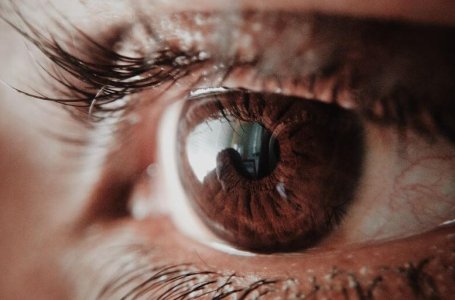Is a simple vitamin supplement the cure for glaucoma?
- Replies 4
Eighty million people suffer from glaucoma globally. In Australia, over 300,000 people are affected by the illness. It’s often called the ‘silent thief of sight’ because it doesn’t present many outward symptoms; in fact, most cases are detected during regular eye tests with an optometrist or ophthalmologist.
Because of the lack of symptoms, researchers believe that there are a lot of undiagnosed cases of glaucoma in the country. But could a readily-available vitamin supplement spell out hope for those suffering?
The known treatment for glaucoma involves intraocular pressure, which is a process to lower the pressure in the eye using eye drops, lasers, or surgery.
And while it is effective, the treatment doesn’t work for everyone. More than a third of people are still affected by vision loss despite receiving treatment. This may be because the higher pressure in the eye is a risk factor for glaucoma and not the root cause of the disease itself.
Glaucoma involves the gradual loss of nerve cells called retinal ganglion cells, and these provide communication between the eyes and the brain – enabling us to see.
Pete Williams, an Associate Professor in Neurobiology at the Karolinska Institutet in Sweden, said: ‘Retinal ganglion cells use a lot of energy, they're always on until you turn them off.’
Bear with us, this is going to get a little technical.
Dr Williams, alongside an international team of doctors, found that people with glaucoma show a steady loss and dysfunction of mitochondria in the eye. The mitochondria are the powerhouse of retinal ganglion cells.
Their team found that as people get older, the eyes create less nicotinamide adenine dinucleotide (NAD), which is a molecule that the mitochondria need to generate more energy.
Less NAD, means the retinal ganglion cells are potentially starved of energy.
To combat this, he formulated this hypothesis:
‘Could we simply put more NAD back into the system and prevent these retinal ganglion cells from dying during glaucoma?’
Dr Flora Hui, an Optometrist Clinician Scientist at the University of Melbourne, is researching to see if a vitamin supplement can help treat glaucoma. Specifically, vitamin B3 which can be found in Vegemite.
Currently, the only research evidence that can be used to treat glaucoma is nicotinamide. Nicotinamide has been used to treat or prevent other conditions, such as the prevention of skin cancer.
Dr Hui led the first clinical trial of nicotinamide in humans at the Centre of Eye Research Australia, which resulted in the potential to boost the health of ganglion cells and help slow down vision loss in people with glaucoma.
While the results produced significant results, Dr Hui said that they’re still unsure whether taking nicotinamide can help prevent vision loss in the long term.
‘We are now starting a two-year clinical trial, which when completed, should allow us to determine whether nicotinamide can slow down glaucoma progression and be incorporated into standard clinical care,’ she said.
‘As nicotinamide supplements are readily available, nicotinamide could be an affordable and accessible treatment for people around the world, to be used with existing treatments,’ Dr Hui added.

Well, there you have it, members! We’ll keep you posted on updates about this study.
Because of the lack of symptoms, researchers believe that there are a lot of undiagnosed cases of glaucoma in the country. But could a readily-available vitamin supplement spell out hope for those suffering?
The known treatment for glaucoma involves intraocular pressure, which is a process to lower the pressure in the eye using eye drops, lasers, or surgery.
And while it is effective, the treatment doesn’t work for everyone. More than a third of people are still affected by vision loss despite receiving treatment. This may be because the higher pressure in the eye is a risk factor for glaucoma and not the root cause of the disease itself.
Glaucoma involves the gradual loss of nerve cells called retinal ganglion cells, and these provide communication between the eyes and the brain – enabling us to see.
Pete Williams, an Associate Professor in Neurobiology at the Karolinska Institutet in Sweden, said: ‘Retinal ganglion cells use a lot of energy, they're always on until you turn them off.’
Bear with us, this is going to get a little technical.
Dr Williams, alongside an international team of doctors, found that people with glaucoma show a steady loss and dysfunction of mitochondria in the eye. The mitochondria are the powerhouse of retinal ganglion cells.
Their team found that as people get older, the eyes create less nicotinamide adenine dinucleotide (NAD), which is a molecule that the mitochondria need to generate more energy.
Less NAD, means the retinal ganglion cells are potentially starved of energy.
To combat this, he formulated this hypothesis:
‘Could we simply put more NAD back into the system and prevent these retinal ganglion cells from dying during glaucoma?’
Dr Flora Hui, an Optometrist Clinician Scientist at the University of Melbourne, is researching to see if a vitamin supplement can help treat glaucoma. Specifically, vitamin B3 which can be found in Vegemite.
Currently, the only research evidence that can be used to treat glaucoma is nicotinamide. Nicotinamide has been used to treat or prevent other conditions, such as the prevention of skin cancer.
Dr Hui led the first clinical trial of nicotinamide in humans at the Centre of Eye Research Australia, which resulted in the potential to boost the health of ganglion cells and help slow down vision loss in people with glaucoma.
While the results produced significant results, Dr Hui said that they’re still unsure whether taking nicotinamide can help prevent vision loss in the long term.
‘We are now starting a two-year clinical trial, which when completed, should allow us to determine whether nicotinamide can slow down glaucoma progression and be incorporated into standard clinical care,’ she said.
‘As nicotinamide supplements are readily available, nicotinamide could be an affordable and accessible treatment for people around the world, to be used with existing treatments,’ Dr Hui added.
Key Takeaways
- Glaucoma affects millions of people worldwide, including more than 300,000 Australians, and is sometimes known as the ‘silent thief of sight’.
- Retinal ganglion cells, the nerve cells in the eye which provide communication between the eye and the brain and use a lot of energy.
- Mitochondria generate energy in the eye, however, as we age, our eyes create less of the essential molecule NAD (Nicotinamide Adenine Dinucleotide), which can make retinal ganglion cells vulnerable to injury, and be one of the drivers in developing glaucoma.
- There is currently a two-year clinical trial taking place to determine if nicotinamide, a type of vitamin B3, can help prevent vision loss from glaucoma.









